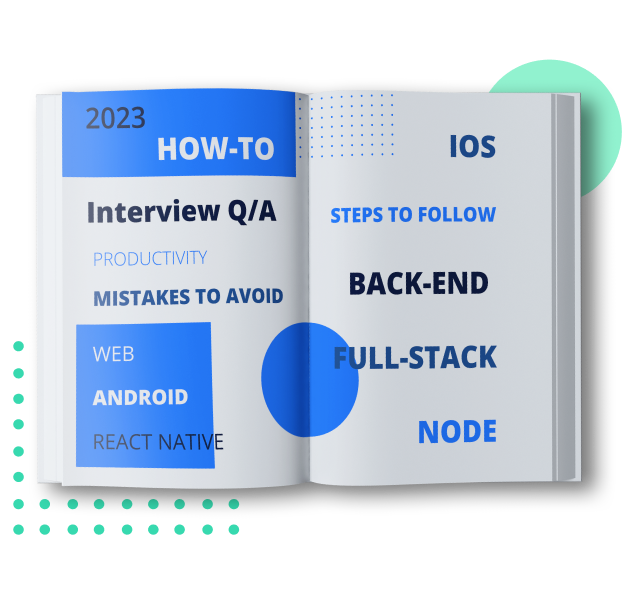The global pandemic made remote work a new norm for the IT sphere. Some employees like it, while others are looking forward or are still waiting to get back to the office.
The new reality has come, and many employers have a number of questions to answer. What should be done next? How to avoid an efficiency drop or there is no room for growth? Which employees are better to work with at the office, which – remotely?
This article is an attempt to find the answers to these and other questions. To get the answers, we learned about the attitude of our employees and managers. Asked how they went through the transition to self-isolation, what were the pros and cons of working from home and at the office, as well as which way of collaboration they considered to be most effective in their opinion.
Onsite work: pros and cons
Onsite work – a kind of work when an employee works at the office.

Now I work at the office, but I have experience in remote work. Honestly, I feel more comfortable working at the office because of being together with the team.
Pros: No one messenger can replace live communication. Collaboration results in new ideas. It is way easier to solve working issues in the team simply by asking colleagues for help. In addition to this success of other teammates motivates for own achievements.
Cons: Speaking about cons, I can only mention “home assignments”. For instance, when it becomes necessary to fix an urgent bug that appears on production unexpectedly. However, it doesn’t happen often.

I work at the office. I’d spent a couple of months working from home when the whole COVID thing began, however realized that I would like to get back to the office. The home atmosphere was too relaxing and I sometimes couldn’t do everything on time. Sometimes due to a flexible schedule, my working day could be over closer to 9 p.m.
Pros: Office work is more convenient for me because of a more productive atmosphere and disciplined schedule.
Cons: It would be great if I could spend less time commuting. Sometimes it is difficult to focus on work because someone is talking next to me. However, the same situation can happen at home.

In my previous job I worked from the office but for a couple of years I preferred to work at home. I can get more things done since I spend less time commuting.
Pros: It is always a pleasure to communicate with colleagues in person and I miss it sometimes. Sometimes I go to the office to restore the balance.
Cons: I couldn’t focus on the assignments while working in the office as someone would always distract me from work. Now, with the advent of covid due to the high density of people in the room, the danger of being infected is quite high.

I always try to be in the office since my position obliges me to keep things under control. Moreover, I like live communication with colleagues.
Pros: In my opinion working in a team is always more productive and faster. It is easier to make changes, create tasks, and make suggestions on their accomplishment. It is easier to monitor team members being in the office. Everyone follows a certain work schedule. It is also easier to ensure corporate data confidentiality in the office. For example, having installed software prohibiting copying certain information.
Cons: As a manager, I would like to first of all mention the high cost of providing working space, premises rent, utility bills, etc.
Remote work: pros and cons
Remote work means that an employee is a part of your company, fulfills the same task an office developer would do, follows the corporate culture and working schedule. The remote working place location is the only different thing.

I mainly work from home. One or two times a week I come to the office to sync on the current tasks.
Pros: Freedom is what I most value in remote work. I like having an opportunity to arrange my working place the way I like it. In addition to this, no office discussions, and hum distracts from work. I can adjust my work schedule the way I want.
Cons: Sometimes the feeling that you are the boss makes it difficult to pull yourself together and start working. But this is an acquired skill. Sometimes I face technical issues when the laptop/desktop computer fails and you need to address this issue as soon as possible by purchasing/repairing the broken piece. And what if the deadline is today? No one is immune to such coincidences.
Summing up, I’ll say that in my opinion, not everyone can work remotely. This is all individual and depends on a person’s self-organization.

I spent much time working in the office, but when COVID came, I switched to working remotely. At first, I was a bit cautious about remote work, but soon discovered plenty of advantages.
Pros: Saving time and money for communing, independence of a working place. More time to spend with the family.
Cons: Lack of live communication became the main concern for me.

The main goal of the company – is high efficiency. Sometimes in the office, it’s very difficult to be efficient due to continuous interruptions by colleagues.
Pros: When you work remotely, it’s easier to ensure yourself the ideal conditions for productive work. In addition, there is no need to take sick leave or take time off. The only thing that matters is completing the project work on time.
Cons: The only disadvantage of working from home is pretty much the same as in the office – you can’t always avoid all the distracting factors. However, in the case of working from home, you have to agree with fewer people.
I have also noticed home and work fusion. Sometimes I lose the sense of time and can work from dust till dawn. I would surely not be able to do so working in the office.

To organize remote work it is necessary to come up with a clear development process, assign straightforward tasks, and write documentation. You will need a system to track the project status. It is also very important to get daily progress reports. This allows you to stay on top of things and correct tasks in due time.
Pros: Among the advantages, I would list smaller office maintenance costs and reduced staff turnover caused by employees’ commuting, family problems, etc.
Cons: The main disadvantage of remote work is the issue of personnel management since remote workers require more control. Separately, I would like to highlight the problems of security and confidentiality. The potential security loopholes for the company are widening with the use of antivirus software, firewalls, and VPN configurations for employees’ home Internet connections. Employees’ decisions to work from cafes or other places with free Wi-Fi connecting personal devices to corporate networks make things even more complicated. Therefore, it is reasonable to minimize cybersecurity risks before switching employees to remote work. Organizations should also address issues of the probability of confidentiality breaches. This could include eavesdropping on a confidential conversation or viewing documents on an employee’s computer.
Which is a better option
As we can see from the feedback, it depends on individual preferences. Some people feel comfortable working in an office where they are more efficient in terms of fulfilling their work and thus are more pleased. Some people like working remotely, noticing that their efficiency remains the same and even increases sometimes.
There is no single opinion on where developers are more efficient – working remotely or in the office. However, based on our experience, there are typical cases when the efficiency of this or that model decreases.
When is it better for an employee to work in the office
If this is a personal wish. The first thing we should pay attention to is the wishes of an employee. In case a person wants to work in the office all you need to do is to create comfortable conditions.
Quite often people want to work from the office but can’t do it for certain reasons. They can be distracted by their colleagues, commuting can take too much time, etc. Talk to your employees about what might be the reason for discomfort and address the issue if it can be solved.
If we deal with a Middle or a Junior developer. In the context of remote work experience of a developer is what matters more than qualification.
Experience helps to fulfill tasks with minimal effort. Therefore, it’s the experience that makes Senior developers different from Junior and Middle developers. The latter will spend a tremendous amount of their personal and someone else’s time solving the tasks they face for the first time. This happens because they need help and the office is a better place to provide it more efficiently.
In case this is a developer mentoring Junior and Middle developers. A person mentoring and managing Junior and Middle developers should be also present at the office since otherwise, it makes no sense at all.
Working with Junior and Middle developers is mainly about their development and growth. The office is a better place for this as it is easier to control the process of education in the same location. In case several people are working on the project it is way easier to discuss everything in person rather than having a separate call with every team member.
If this developer is a newcomer or has recently joined the team. Personal communication with colleagues has a positive effect on relations and the team atmosphere in general. Besides this, developer’s adaptation to company-specific processes will run faster, and less time will be spent figuring things out, asking necessary questions, and starting working efficiently. Learn more about how to arrange the adaptation process for your developers right in our article Developer onboarding checklist.
When can an employee be efficient working remotely?
If it is a person’s wish to work remotely. And yes, again, a personal wish is the first thing you should pay attention to. Remote work means a high level of self-organization and discipline, and if a person understands that he can handle it, you can meet halfway.
To understand at the beginning how organized a person is, you can ask him a couple of questions about why he would like to work remotely:
- If a person gives you good reasons in favor of working remotely, like spending too much time commuting, for instance. Or, if a person has a certain schedule according to which working from home is more convenient, most likely that this person knows how to manage and plan time. The self-organization this person already has will let him increase efficiency, as he will simply not waste time commuting.
- In case the wish to work from home is just for the sake of the wish itself, most likely additional time slots in the developer’s working day won’t increase his efficiency and may even decrease it. It will be difficult for a person to organize his working day independently just because he does not have such a habit.
In case a person accurately accomplishes assignments. It matters how a person works with assigned tasks. If he asks additional questions when receiving the task. How he informs about work progress and issues faced. How reports when the task is accomplished. Read more about what you should pay attention to and how to check these things in advance in our article How to hire remote developers successfully.
If this is a senior developer who can accomplish tasks independently. A developer needs experience in solving certain tasks to arrange remote work efficiently. As a rule, senior developers possess such experience.


However, not all senior developers can solve all the tasks independently. It occurs that the general level of a senior developer is high enough, but he lacks experience in terms of planning application architecture. Or he might lack experience in a certain specific field. The office would be a better place for him when addressing such tasks since efficiency would be higher when working with the team.
Sometimes Middle and Junior developers can be efficient working remotely. Theoretically, Middle and Junior developers can work remotely. To do this, the tasks they perform have to be familiar and routine, as well as not require permanent discussions. It is also important to have an opportunity to assess the results of their work without an efficiency drop.
There is no need to radically decide in favor of either remote or office work since there is always room for compromise decisions. For example, agree that a developer should work in the office once a week to touch base within the course of the project.
Of course, all rules have exceptions. Sometimes, middle developers are being able to successfully do their work while working remotely. Some teams succeed when working remotely. However, if we speak about efficiency, the above rules are applicable for 90% of projects you might work on.
Remote vs On-site: 3 things you should pay attention to
The choice between remote and office work is very individual. It depends on many factors that can be distilled to 3 basics: experience, self-organization, and independence.
Experience implies that a developer has experienced similar tasks and can efficiently fulfill them.
Self-organization means a person can manage time independently. The home environment doesn’t result in slacking, and all the tasks are accomplished in due time.
Independence assumes that a developer doesn’t spend much time on communication within the team. The task is accepted, initial questions are asked, and the final result is given.
If at least one of these basics is missing development should better be done in the office.
Tips to help you make the right decision
- Talk to a developer. Learn where he wants to work and what the reasons are behind this. Developers’ wishes are the first thing you should pay attention to.
- Evaluate the project a developer is involved in. If it requires team collaboration and regular discussions – office work is a better option.
- Assess the level of the developer and his ability to work remotely. Only senior developers can be efficient in working remotely. Junior and Middle developers should better work in the office.
- In the case of a senior developer, check if he supervises Junior and Middle developers. If he does, he should better join his mentees in the office.
- For Junior and Middle developers check what tasks they accomplish. If these are the routine familiar assignments that don’t require frequent discussions developers can also work remotely.
- Developers who have recently joined the company should take some time to work and get accustomed to the office before switching to remote work.













